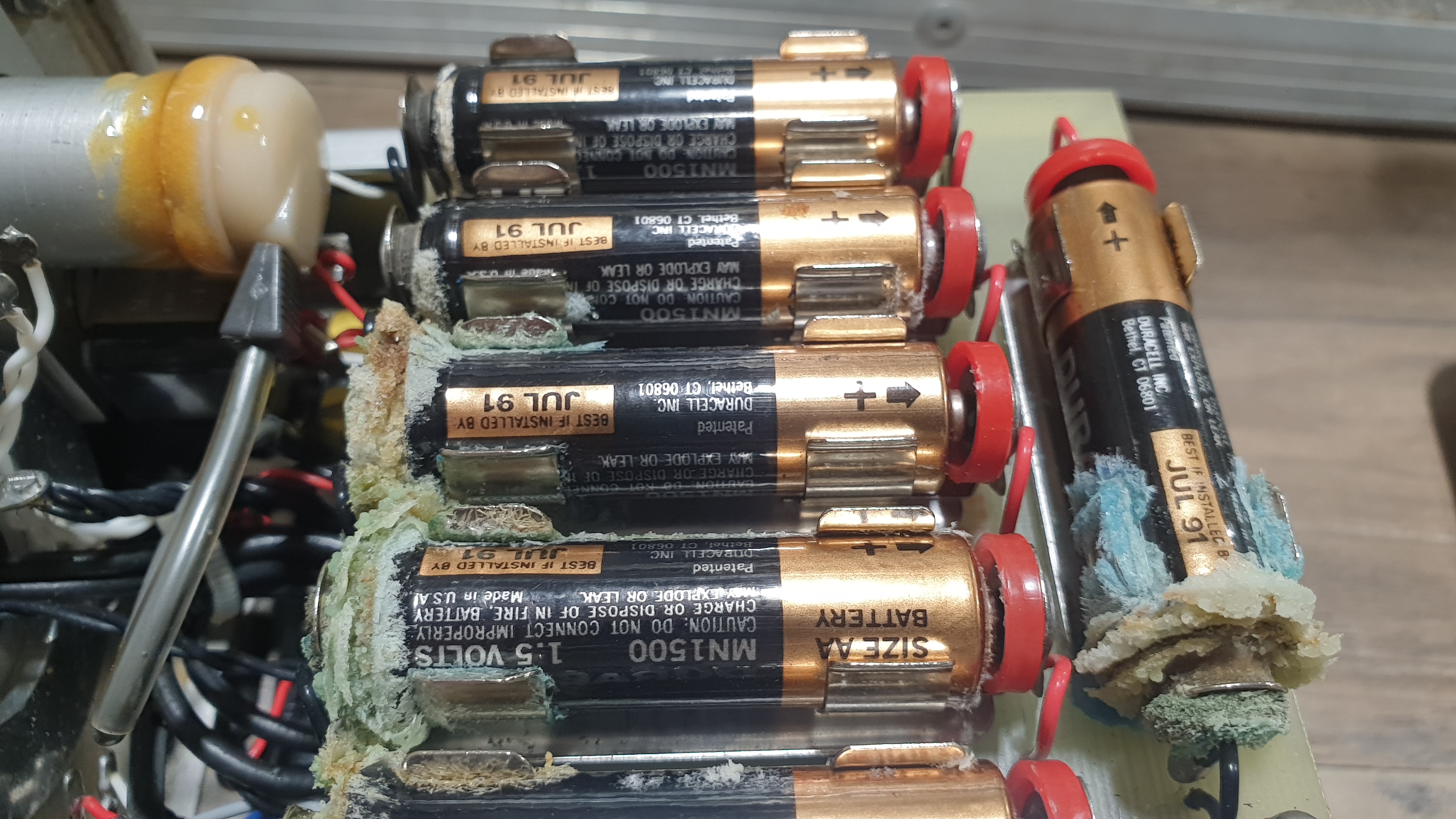this post was submitted on 16 Oct 2024
174 points (99.4% liked)
Electronics
2045 readers
1 users here now
Projects, pictures, industry discussions and news about electronic engineering & component-level electronic circuits.
Rules
1: Be nice.
2: Be on-topic (eg: Electronic, not electrical).
3: No commercial stuff, buying, selling or valuations.
4: No circuit design or repair, tools or component questions.
5: No excessively promoting your own sites, social media, videos etc.
Ask questions in https://discuss.tchncs.de/c/askelectronics
founded 1 year ago
MODERATORS
you are viewing a single comment's thread
view the rest of the comments
view the rest of the comments

Give it the vinegar and baking soda treatment.
I greatly prefer citric acid. It comes in crystals so a small tub equals gallons of vinegar, it doesn't smell bad, and you can control the strength by dissolving more crystals into water.
It's incredibly fast compared to vinegar at cleaning battery alkaline.
Citic or citRtic?
Citric. Fixed!
Cool, I thought there was a pretty good chance there are acids of which I've never heard.
Coca Cola works really well if you don’t have citric acid on hand. I’ve cleaned car battery terminals with it a bunch of times (over decades). The only bummer is that it’s sticky, but you can drink the leftovers.
To each his own. I've tried a few solutions. I use vinegar and apply it with some large cotton swabs. I usually wash them with the vinegar two or three times and let it sit for an hour. Then I use the baking soda dissolved into water and apply it several times. If possible to remove the contacts completely I will soak it in vinegar and then the baking soda solution. I buff the contacts if they are badly corroded. I can't stress enough how much a little dielectric grease prevents further corrosion.
Yeah, I use baking soda and dielectric grease after acid too. I was only offering that citric acid is better than vinegar in every way.
and make a nice vinaigrette with it
I understand the vinegar, but why baking soda?
Neutralize the vinegar after dissolving the corrosion? I've not done that, but seems plausible.
It works. I've done it quite a few times. I have used a Dremel tool to buff the contacts and used a light coating of dielectric grease to prevent further corrosion.
A brush on the dremel?
Yes, wear gloves and eye protection. Those small wires would be a nightmare get out of your skin even more so for the eyes.
I would recommend rinsing the vinegar away with water instead. It's already completely dissolved, but the baking powder might not be if you add that undissolved. You don't want to leave anything behind.
Fizz
Volcano!
Abrasive maybe?